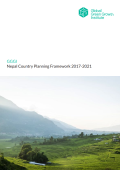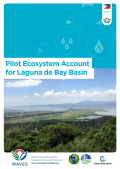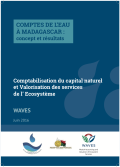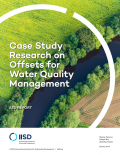This case study presents the findings of an ecosystem valuation that was undertaken to assess the types and scale of economic benefits associated with wetland restoration in Ripon City Quarry, Yorkshire.
The IUCN Sri Lanka Country Office implemented a project on integrating wetland ecosystem values into river basin management in collaboration with the Mahaweli Authority of Sri Lanka. This paper focuses mainly on the direct and indirect services provided by the small tank ecosystems and possible techniques for valuing those which can be utilised in decision making regarding water and resource allocation.

This Country Planning Framework (CPF) outlines the five-year program and joint commitment that the Global Green Growth Institute (GGGI) and the Government of Nepal (GoN) have pledged to achieve in the period 2017-2021.

This case study, The Economic Value: Shouf Biosphere Reserve , is aiming to describe, in preliminary terms, the economic value of the Shouf Biosphere Reserve (SBR), Lebanon, by valuing carbon sequestration, fuel provision (briquettes production), water provision, food provision, tourism, and cultural services and patrimonial values.

This report, Consultation Draft for the Zambia Water Account , represents the first ever attempt at producing water accounts for the Republic of Zambia, following the System of Environmental Economic Accounting (SEEA), which aims at giving stakeholders an opportunity to provide feedback to the work so far, such that a better version of the water accounts can be produced.

This technical report, Pilot Ecosystem Account for Laguna de Bay Basin , explores the specific challenges confronting natural resource management in the Laguna de Bay Basin, and presents the key findings of the ecosystem account developed between January 2014 to December 2015.

In this technical paper, Water Accounts in Madagascar: Concepts and results , results for national water accounts prepared as part of the WAVES partnership are presented. These water accounts will make it possible to improve the management of water in the Malagasy territory, in proportion to the consumption of users, and to meet the needs of industries and growth sectors.

This case study research examines six water quality trading (WQT)/offset programs from Canada, the United States and New Zealand and highlights specific policy and program mechanisms that enabled the programs to achieve their goals of reduced nutrient and contaminant loading.

The Role of Sustainability-oriented Social Enterprises in Boosting Green Livelihoods and Business Opportunities in Rural Contexts reviews the cases of capacity building and knowledge improvement of rural livelihood in rural communities related to sustainable and low-carbon solutions. The reviewed sub-cases show that implementation of local integrated systems of solutions addressing energy, water, shelter and other livelihood needs at community level require paying major attention to enabling social processes and organisational capacities rather than only focusing on a given technological innovation.
The flow of data on freshwater health is becoming difficult to manage. This report summarizes eight case studies highlighting instances where financial technology (fintech) is being used to improve the understanding of ecological interactions with humans to better inform decision-making and plan for sustainable development and resilience.
